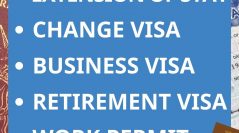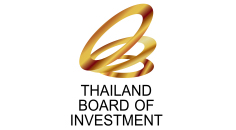
According to agreements between member countries of ASEAN Economic Community (AEC), in 2015 at AEC will cause free flow of labor especially skilled labor or professionals among AEC members. To explain this, all AEC members have recognized and agreed in Mutual Recognition Arrangements (MRA) for seven professional fields which consist of engineering services, nursing services, architectural services, surveying qualifications, medical practitioners, dental practitioners and accountancy services. These seven professional fields can work across AEC country members freely under MRA. However, skilled workers must register their profession, or obtain job certification, or pass specific job tests of the host nation. Many countries have begun to preparing their people to meet a good opportunity and to be able to race in AEC Market.
In Thailand case, education system in Thailand has produced substantial number of graduators from 7 professional fields into labor market in every year. It can be expected that Thailand will not lack professionals or skilled labors in Thailand. However, it is not easy for Thai skilled labor to be success in AEC labor market. Based on the current research from University of Thai Chamber of Commerce (UTCC), Thailand had yet to prepare for the new challenges that will be presented by the AEC. Many Thai labors are still in lack of understanding about AEC and they see AEC in the way that is not much benefit for them. In addition, many Thai professionals do not prefer to work abroad and do not want to compete with other country members in AEC.
It can be seen from the research that only 50 per cent of dental practitioners in Thailand had a good understanding of the AEC but most of them saw no real benefit from AEC to their careers. Similarly with architecture, half of Thai architects are still in lack of a good understanding of AEC and recognize its benefits. However, they see it as a good opportunity to work abroad, especially in Brunei, Cambodia, Laos, Myanmar and Vietnam.
However, medical practitioners are different from dentists and architectures. It can be seen that 50 percent of medical practitioners did anticipate and hope to enjoy some benefits from AEC. However, they preferred to stay in Thailand rather than any other ASEAN country because of the Kingdom’s high standards of medical services. They also don’t want to have to adjust to new cultures. Many doctors prefer to go to developed countries in North America or Europe when they upgrade and grow their career paths.
Furthermore, only 30 percent of Thai engineers knew AEC well, and only 10 per cent saw it as beneficial. Thai engineers work to comparable standards to Singapore and the Philippines, but they have a disadvantage in term of English-language ability.
Similarly, only 20 percent of nurses had a good understanding of AEC and recognized its benefits. They also had little interest in working abroad, particularly in ASEAN countries.
Although 80 percent of accountants had a good understanding of AEC, only 50 percent think AEC will have benefits for their career.
To solve this problem, Government of Thailand should consider working harder on educating the skilled labors or the related professional fields about the benefits and opportunities of AEC before AEC will start in next two years. Government should change attitude of Thai skilled labors and encourage them to be prepared to work in AEC labor market outside Thailand as well.
To be successful in labor market, skilled labors should have good understanding in goals and benefits of AEC, including cultural in each member country and good language skills, especially English for communication.
Furthermore, many universities in Thailand should be more strict about the quality of their graduators and not only quantity. After the opening of AEC Thai graduators must be able to compete with oversea labors in their career.















